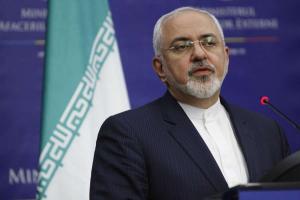 Dear readers, Catholic Online was de-platformed by Shopify for our pro-life beliefs. They shut down our Catholic Online, Catholic Online School, Prayer Candles, and Catholic Online Learning Resources essential faith tools serving over 1.4 million students and millions of families worldwide. Our founders, now in their 70's, just gave their entire life savings to protect this mission. But fewer than 2% of readers donate. If everyone gave just $5, the cost of a coffee, we could rebuild stronger and keep Catholic education free for all. Stand with us in faith. Thank you. Help Now >
Dear readers, Catholic Online was de-platformed by Shopify for our pro-life beliefs. They shut down our Catholic Online, Catholic Online School, Prayer Candles, and Catholic Online Learning Resources essential faith tools serving over 1.4 million students and millions of families worldwide. Our founders, now in their 70's, just gave their entire life savings to protect this mission. But fewer than 2% of readers donate. If everyone gave just $5, the cost of a coffee, we could rebuild stronger and keep Catholic education free for all. Stand with us in faith. Thank you. Help Now >
New Iran sanctions continue discussion on 'proportionality'
FREE Catholic Classes
The Trump administration added another high-ranking Iranian official this week to its list of sanctions against Iran, inviting continued discussion about the morality of lethal and non-lethal means of resolving conflicts.

Highlights
Washington D.C., (CNA) - The Trump administration announced on Wednesday that it would take action against Iran's foreign minister Mohammad Javad Zarif as the "face" of the regime in Iran. The move is a continuation of President Trump's Executive Order 13876 in June, which issued sanctions against Iran's Supreme Leader Ali Hosseini Khamenei and his office, and placed Supreme Leader Khameni on the Office of Foriegn Assets Control (OFAC) List of Specially Designated Nationals and Blocked Persons.
As part of that order, Zarif on Wednesday was added to the OFAC list, which freezes the U.S. assets of the named individuals and prevents people in the U.S. from dealing with them.
A senior administration official told reporters on Wednesday that Zarif "is the international face of this regime," spreading "propaganda" on behalf of its "nuclear program," "terrorist network," execution of homosexuals and detention of Washington Post journalist Jason Rezaian.
In June, Zarif defended the regime's executions of homosexuals in a joint press conference with the German foreign minister, telling a reporter from the German tabloid Bild the law was based on "moral principles."
"While the United States has historically placed a high priority on preserving space for diplomacy, there are limits to our patience when a regime so routinely flouts these protocols," a senior administration official told reporters on Wednesday.
In June, President Trump said he called off a planned missile strike against Iran, in retaliation for Iran shooting down a U.S. drone, because the use of force would not be "proportionate" to the shooting of the drone. Moral theologians explained to CNA the Church's teaching on the proportionate use of force in a just war; "the use of arms must not produce evils or disorders graver than the evil to be eliminated," Dr. Kevin Miller, a moral theologian at Franciscan University of Steubenville, said to CNA.
And when the use of military force is not "proportionate" to an act of aggression, or is not the "last resort" against an unjust aggressor, other "non-lethal" means of pursuing peace must be employed, Monsignor Stuart Swetland, president of Donnelly College, explained to CNA earlier in July.
Regarding the morality of sanctions in general, they must be judged in the context of the "promotion of peace," and must always be used with the goal of bringing the parties to the negotiating table, he said.
Sanctions can take many forms, from targeted sanctions against individual human rights abusers to sanctions against whole sectors of a country's economy such as import or export bans; "they can't be used indiscriminately," Swetland said, and must be "continuously reevaluated" as they are applied.
The broader the sanctions are, he continued, the more scrutiny they merit; "when ordinary people can't get food and medicine, it's gone too far," he said.
The actions against Zarif are part of the Trump administration's "maximum pressure campaign" against Iran, a senior administration official told reporters on Wednesday.
Since announcing that the U.S. would be withdrawing from the 2015 nuclear deal between Iran and other world powers" a deal that lifted international sanctions on Iran in exchange for the regime curbing its nuclear program" the U.S. has reimposed sanctions and placed additional sanctions on Iran, including on goods such as aluminum and oil exports.
Citizens in Iran have reported feeling the brunt of economic sanctions, having difficulty accessing needed medical treatments and paying higher costs for food, as CNA reported previously; the Associated Press reported on Tuesday that the cost of imported medicines in Iran have sharply increased.
---
'Help Give every Student and Teacher FREE resources for a world-class Moral Catholic Education'
Copyright 2021 - Distributed by Catholic Online
Join the Movement
When you sign up below, you don't just join an email list - you're joining an entire movement for Free world class Catholic education.

-

- Stations of the Cross
- Easter / Lent
- 5 Lenten Prayers
- Ash Wednesday
- Living Lent
- 7 Morning Prayers
- Mysteries of the Rosary
- Litany of the Bl. Virgin Mary
- Popular Saints
- Popular Prayers
- Female Saints
- Saint Feast Days by Month
- Pray the Rosary
The Way of the Cross: A Good Friday Reflection on Christ’s Final Journey
The Many Reasons Why We Call it Good Friday
“It Is Finished”: The Silence of Good Friday and the Triumph of the Cross
Daily Catholic
 Daily Readings for Saturday, April 19, 2025
Daily Readings for Saturday, April 19, 2025 St. Alphege: Saint of the Day for Saturday, April 19, 2025
St. Alphege: Saint of the Day for Saturday, April 19, 2025 Stewardship Prayer: Prayer of the Day for Saturday, April 19, 2025
Stewardship Prayer: Prayer of the Day for Saturday, April 19, 2025 Daily Readings for Friday, April 18, 2025
Daily Readings for Friday, April 18, 2025 St. Apollonius the Apologist: Saint of the Day for Friday, April 18, 2025
St. Apollonius the Apologist: Saint of the Day for Friday, April 18, 2025- Aspiration: Prayer of the Day for Friday, April 18, 2025
![]()
Copyright 2025 Catholic Online. All materials contained on this site, whether written, audible or visual are the exclusive property of Catholic Online and are protected under U.S. and International copyright laws, © Copyright 2025 Catholic Online. Any unauthorized use, without prior written consent of Catholic Online is strictly forbidden and prohibited.
Catholic Online is a Project of Your Catholic Voice Foundation, a Not-for-Profit Corporation. Your Catholic Voice Foundation has been granted a recognition of tax exemption under Section 501(c)(3) of the Internal Revenue Code. Federal Tax Identification Number: 81-0596847. Your gift is tax-deductible as allowed by law.



 Daily Readings for Saturday, April 19, 2025
Daily Readings for Saturday, April 19, 2025 St. Alphege: Saint of the Day for Saturday, April 19, 2025
St. Alphege: Saint of the Day for Saturday, April 19, 2025 Stewardship Prayer: Prayer of the Day for Saturday, April 19, 2025
Stewardship Prayer: Prayer of the Day for Saturday, April 19, 2025 St. Apollonius the Apologist: Saint of the Day for Friday, April 18, 2025
St. Apollonius the Apologist: Saint of the Day for Friday, April 18, 2025

